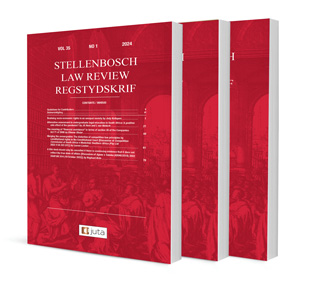Alternative assessment in undergraduate legal education in South Africa: A positive side effect of the pandemic?

Alternative assessment in undergraduate legal education in South Africa: A positive side effect of the pandemic?
Authors: JG Horn and L van Niekerk
ISSN: 1996-2193
Affiliations:BProc LLB LLM MA (HES) LLD, Senior lecturer, University of the Free State; LLB PG DIP (FINANCIAL PLANNING LAW) LLM MA (HES), Lecturer, University of the Free State
Source: Stellenbosch Law Review, Volume 35 Issue 1, 2024, p. 21 – 39
https://doi.org/10.47348/SLR/2024/i1a2
Abstract
The global Covid-19 pandemic resulted in a transition to online teaching and learning, which prompted higher education institutions to reconsider their assessment methods. Soon, implementing the most appropriate assessment approach to encourage students to engage with the study material on an ongoing basis and which would lead to a deeper understanding of module content became an exciting challenge in the completely remote learning scenario. Grappling with this challenge, lecturers in the Faculty of Law at the University of the Free State implemented alternative assessment methods in a Legal Skills first-year module and a Law of Property third-year module. By using the action research method to implement change, observe the change and critically reflect on the outcome, the authors report on the valuable lessons that they have learned from this exercise. This contribution provides an account of the benefits and drawbacks of traditional versus alternative assessment methods and a critical perspective on the practicality of using alternative assessment tools in undergraduate programmes.
